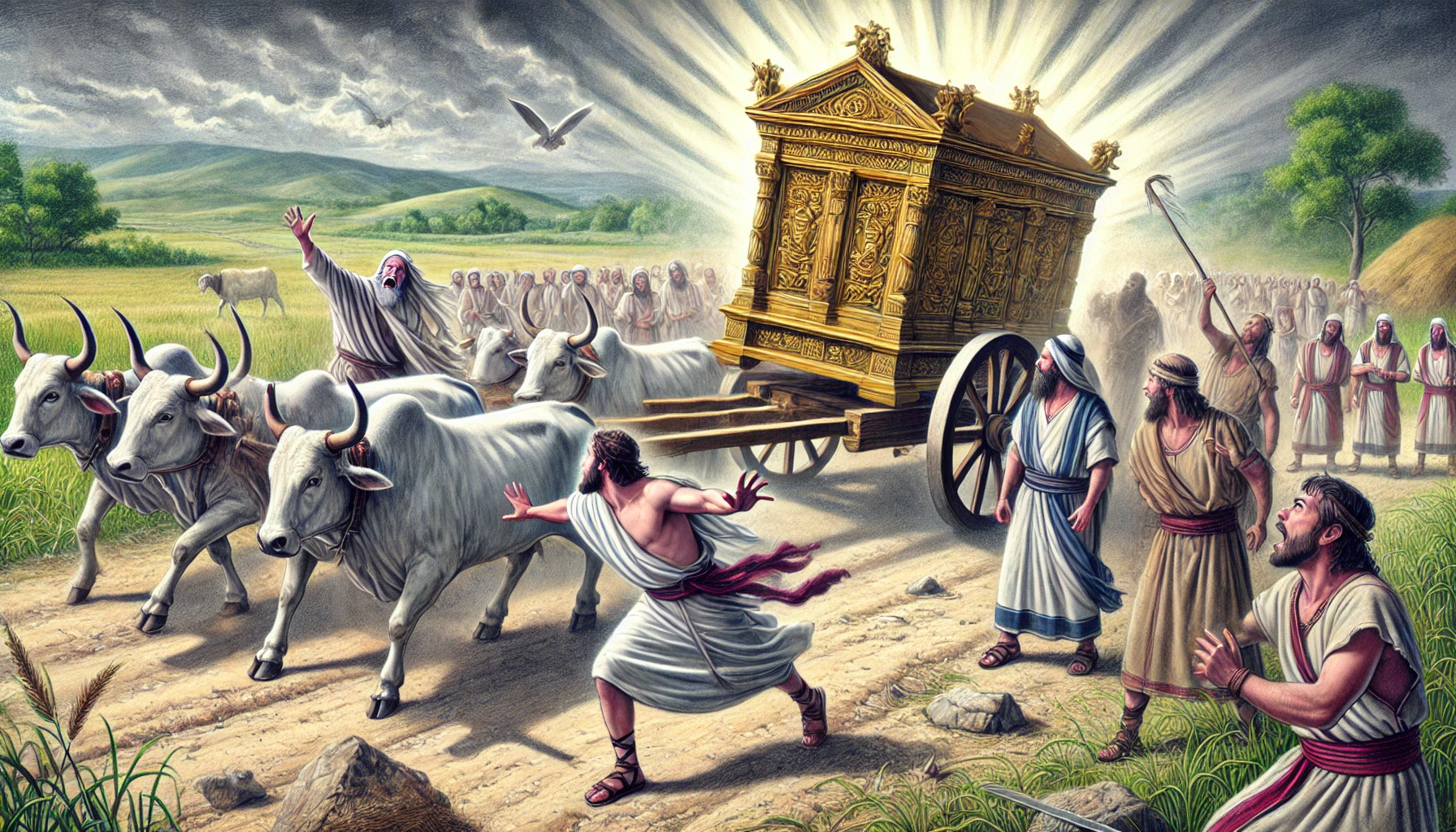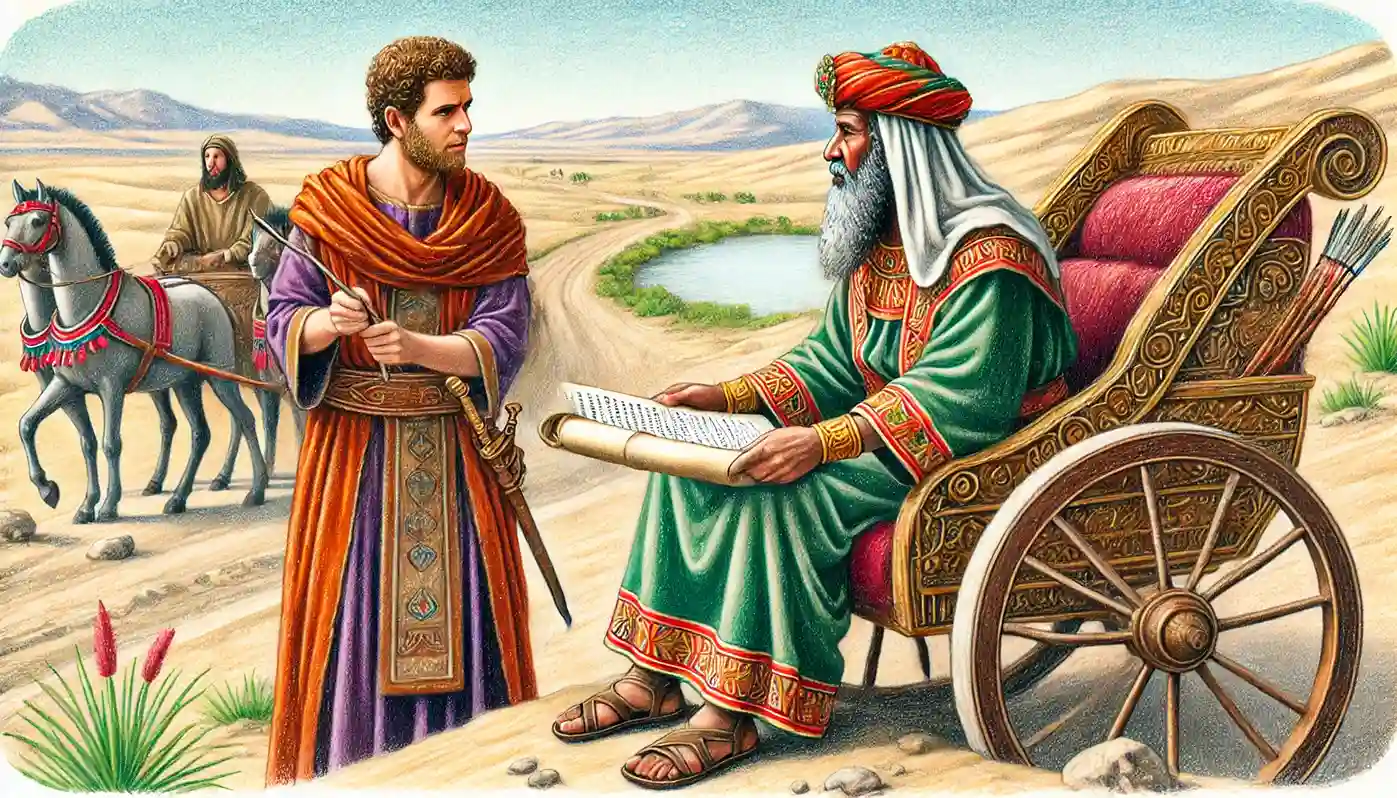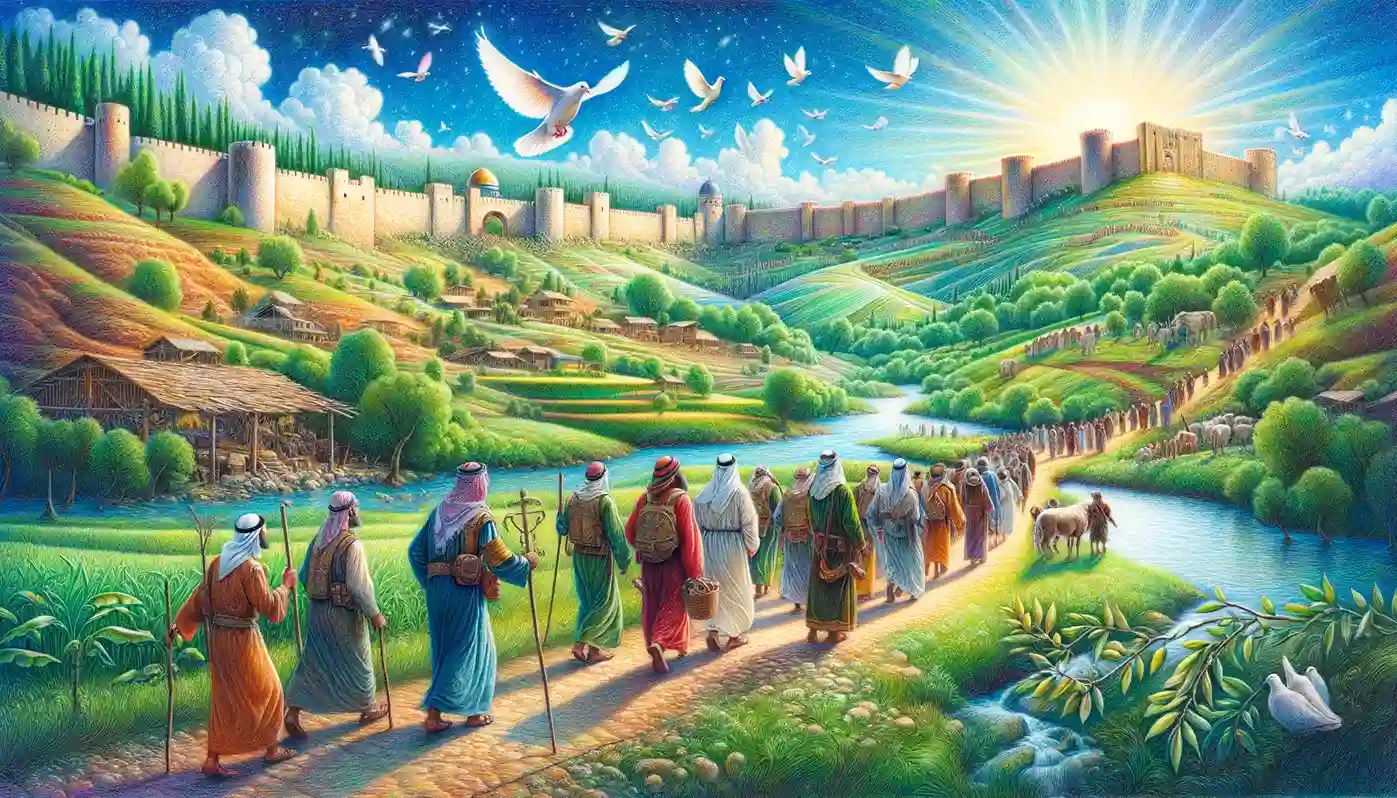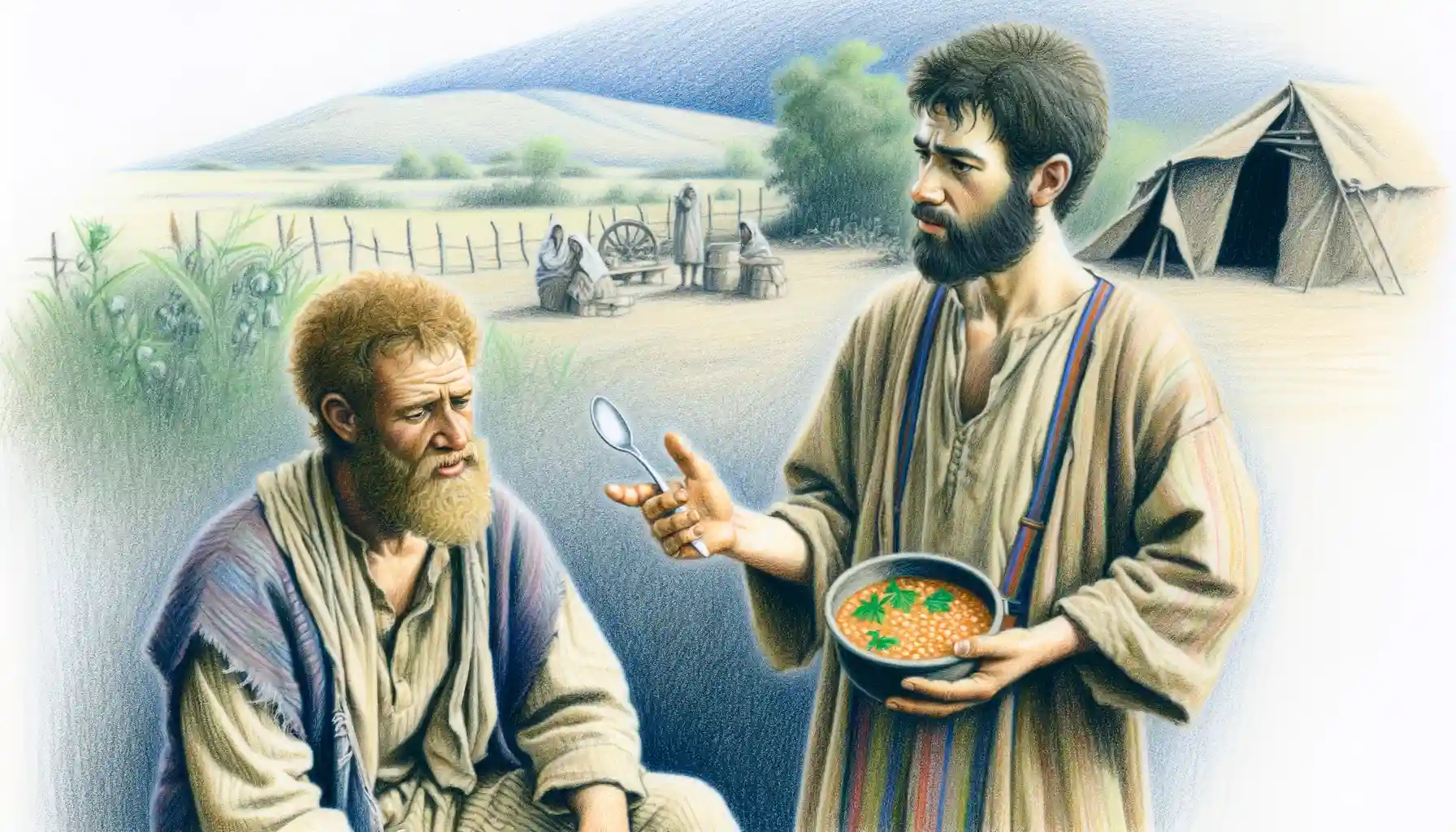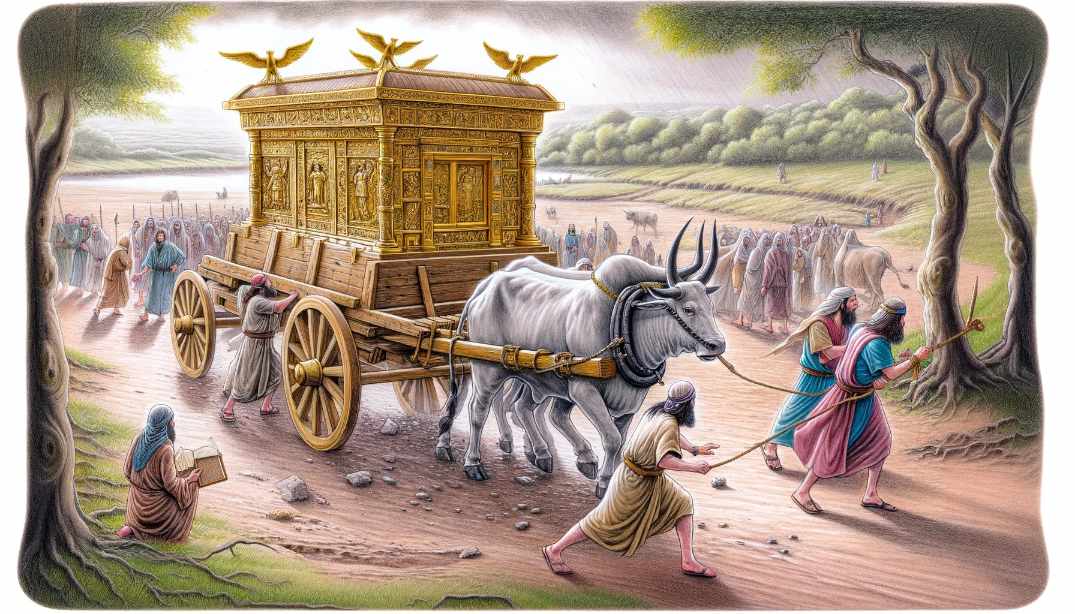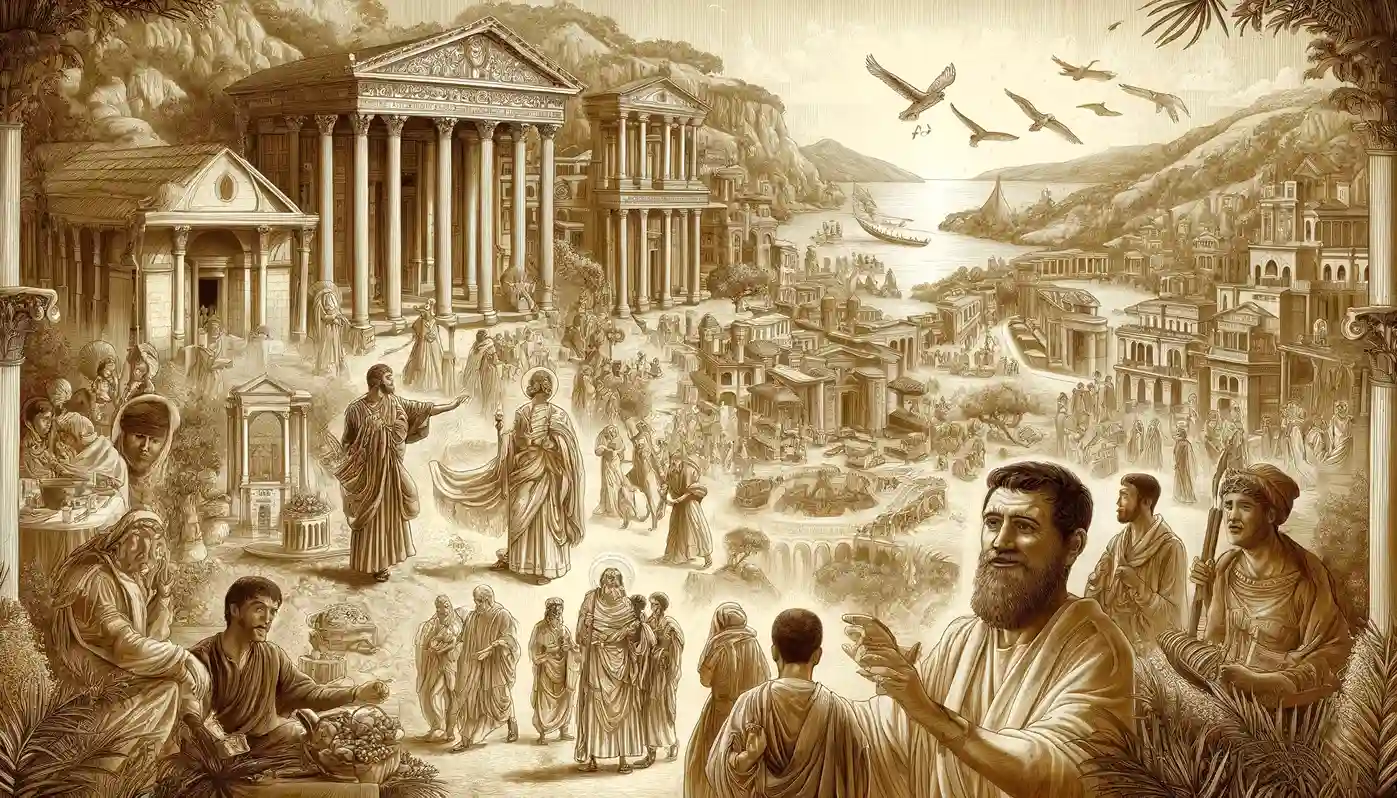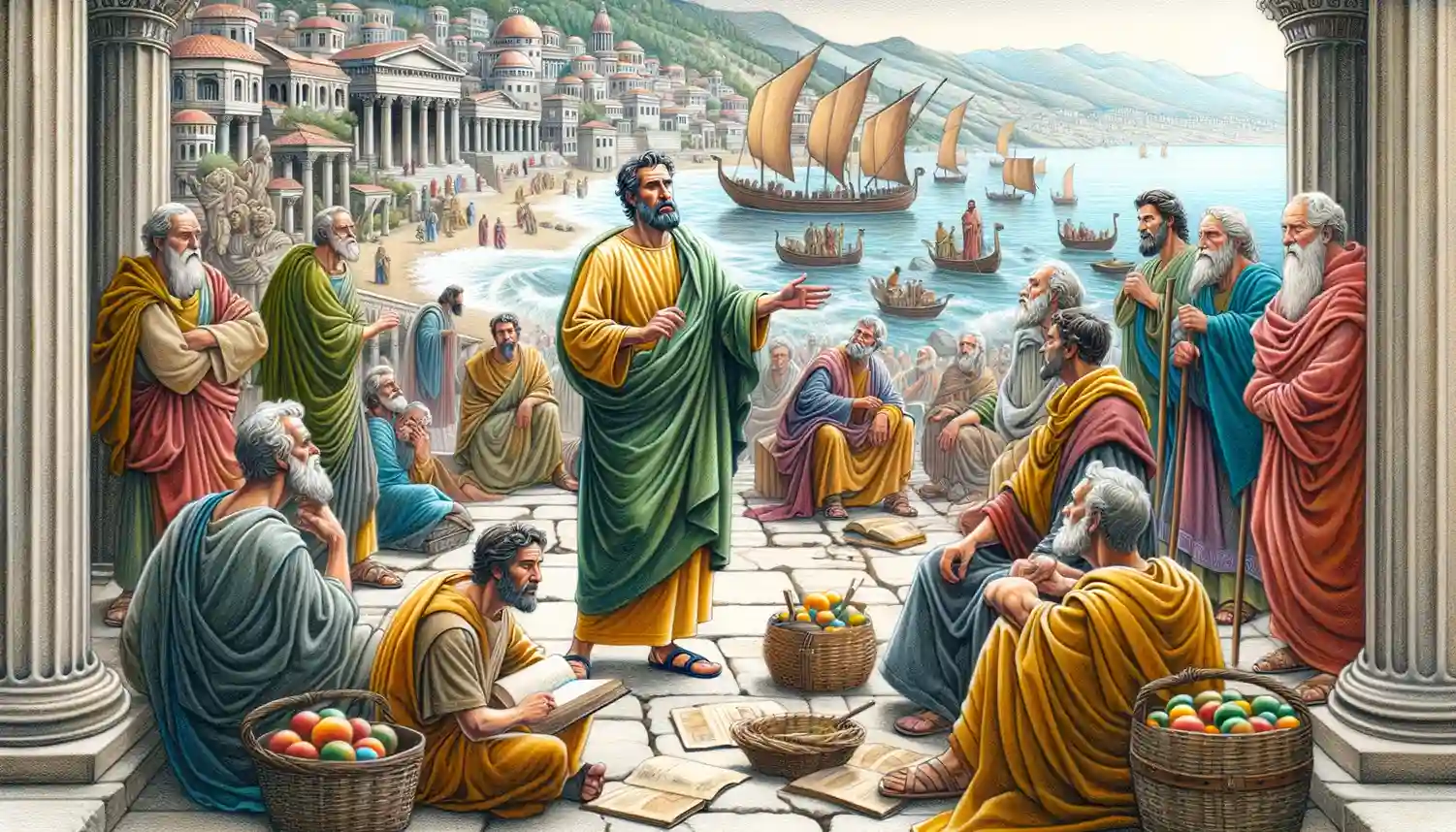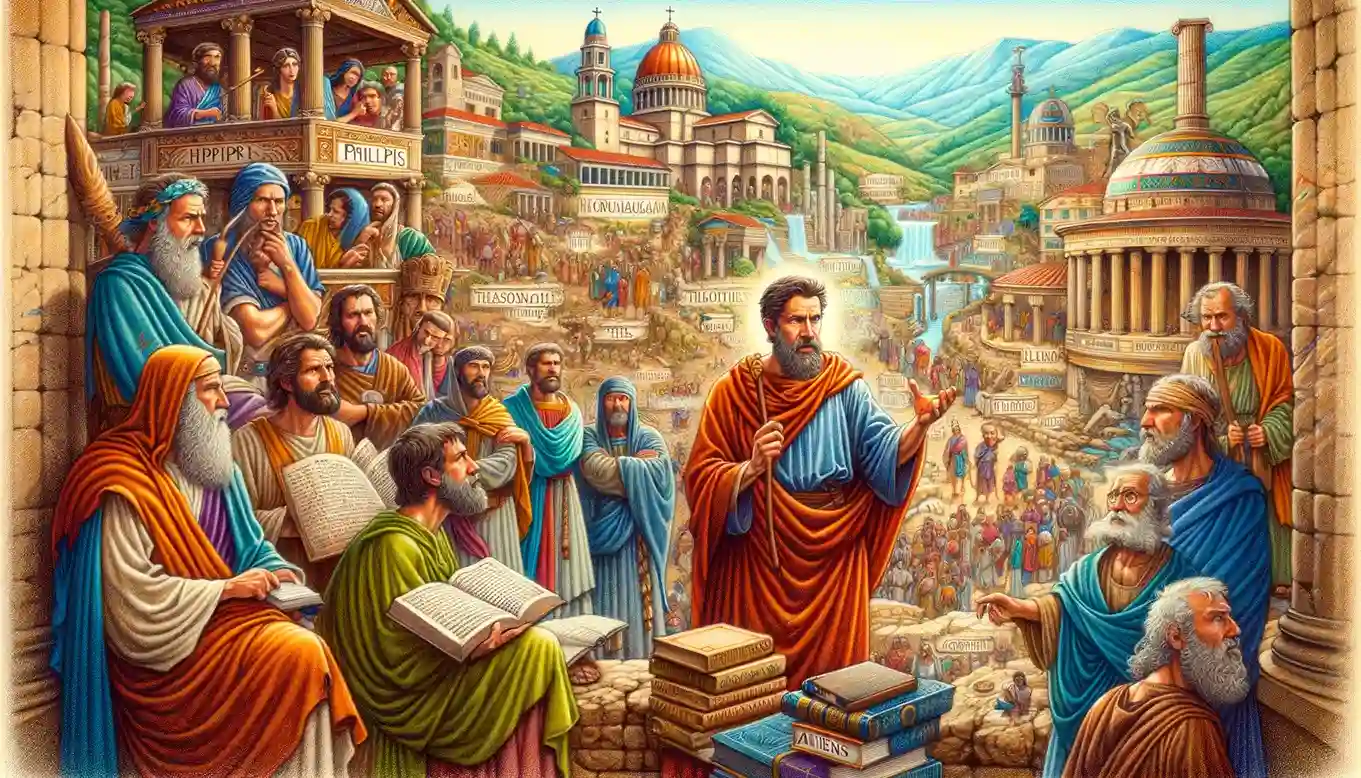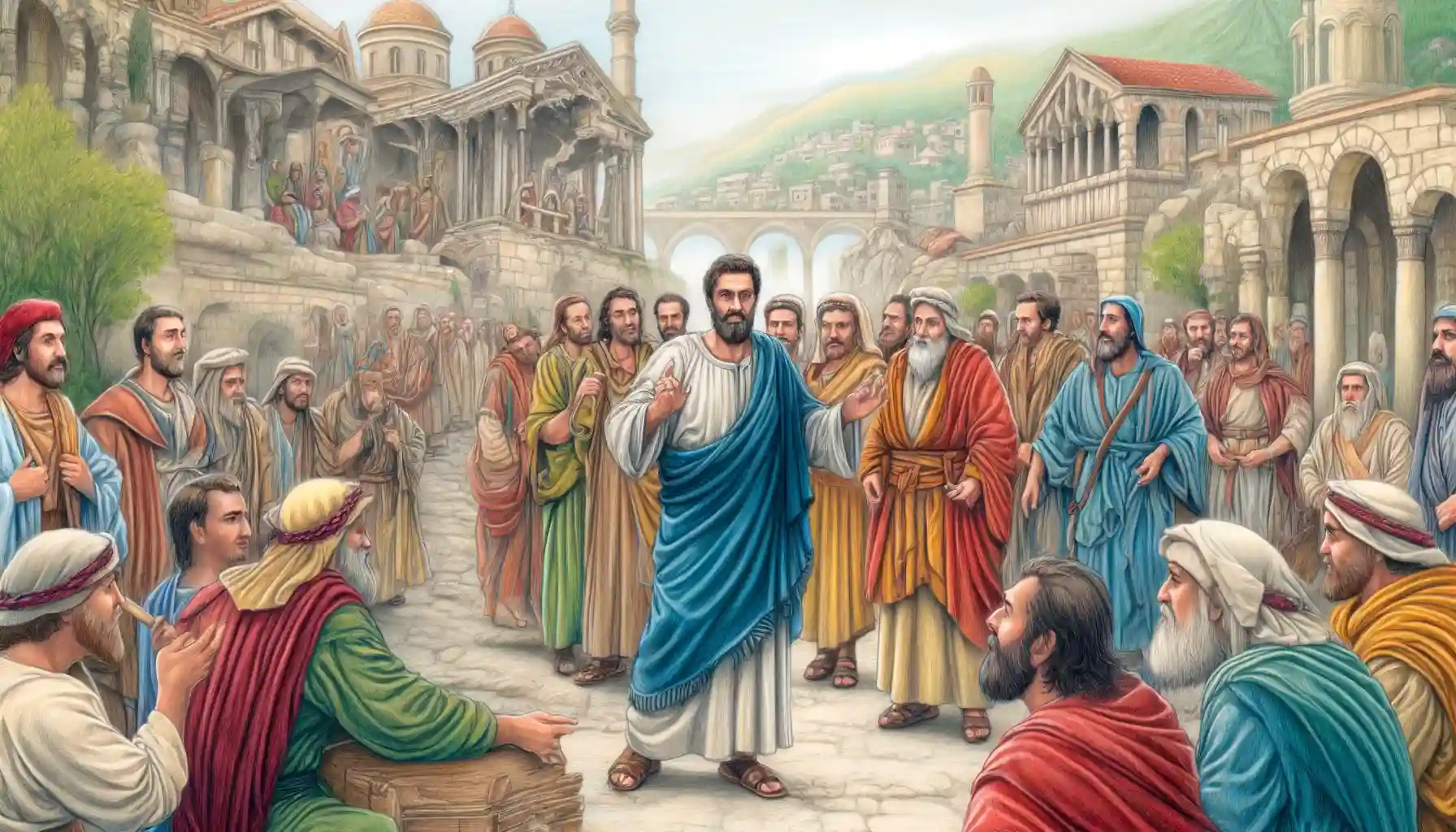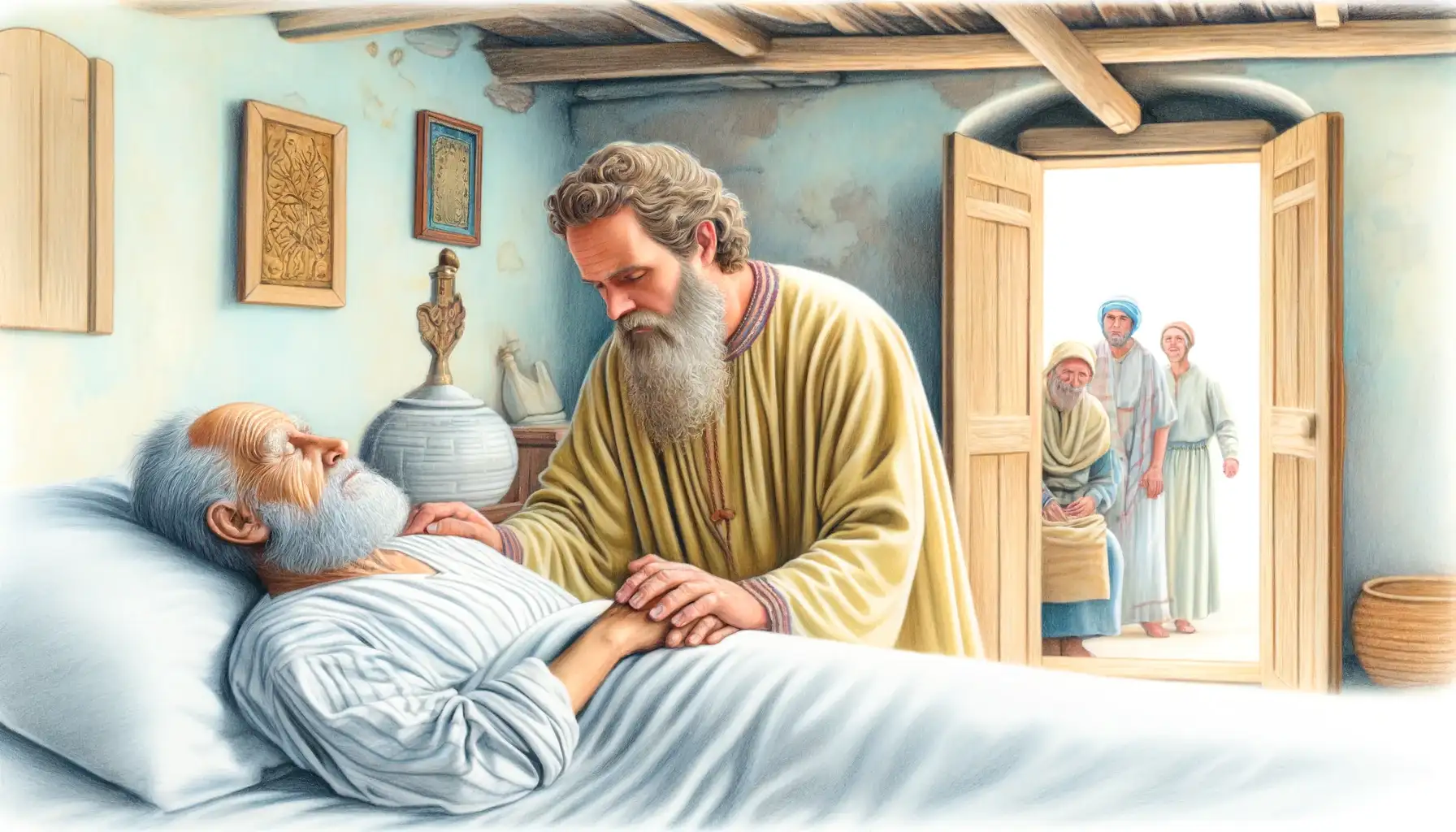Uzzah was struck down by God for touching the Ark of the Covenant when it was being transported, a dramatic demonstration of God’s holiness and the importance of following His commands regarding sacred matters.
Philip the Evangelist, guided by an angel, encountered an Ethiopian eunuch reading Isaiah on a desert road, explained the scripture’s significance regarding Jesus Christ, and baptized the eunuch, leading to his conversion and joy.
The restoration of Israel is a prominent biblical theme involving God’s promise to return the Israelites to their land, foretold by prophets and seen historically in the return from Babylonian exile and in modern times with the establishment of Israel.
Esau sold his birthright to his younger brother Jacob for a meal, a decision that demonstrated his disregard for his heritage and had lasting consequences on the lineage and destiny of the Israelites.
The event of Uzzah and the Ark, where Uzzah was struck dead by God for touching the Ark to steady it during its transport to Jerusalem, underscores the absolute holiness of God, the importance of following His specific instructions, and serves as a cautionary tale about the need for reverence and obedience in approaching the divine presence.
Paul’s missionary journeys, spanning from Antioch to cities like Ephesus, Philippi, Athens, and Corinth, were pivotal in the spread of Christianity, marked by his dedication to preaching the Gospel, performing miracles, and establishing strong early Christian communities despite numerous challenges and opposition.
Paul’s third missionary journey, accompanied by various disciples including Timothy and Luke, focused on strengthening and encouraging the early Christian communities he had previously established, as he traveled from Antioch through key locations such as Galatia, Phrygia, Ephesus, Macedonia, Greece, Troas, Miletus, and Jerusalem, preaching the Gospel, performing extraordinary miracles, facing opposition, and providing pastoral care, ultimately solidifying the foundation of the early church despite significant personal risk and challenges.
Paul’s second missionary journey, accompanied by Silas, Timothy, and later Luke, significantly expanded the reach of Christianity into Europe as they traveled from Antioch through key locations such as Philippi, Thessalonica, Berea, Athens, Corinth, and Ephesus, preaching the Gospel, performing miracles, and establishing strong Christian communities despite facing considerable opposition, thereby demonstrating the transformative power and inclusivity of the Gospel.
Paul’s first missionary journey, undertaken with Barnabas and John Mark, marked a foundational moment in the spread of early Christianity as they traveled from Antioch to Cyprus, Pisidian Antioch, Iconium, Lystra, and Derbe, preaching the Gospel, performing miracles, facing persecution, and establishing new churches, thereby demonstrating the transformative power of the Gospel and the inclusivity of God’s salvation plan.
The healing of Publius’ father by the Apostle Paul on the island of Malta demonstrated God’s power and mercy, as Paul prayed and laid hands on the sick man, resulting in immediate healing and leading to the recovery of many others on the island, which strengthened the faith of the Maltese people.

